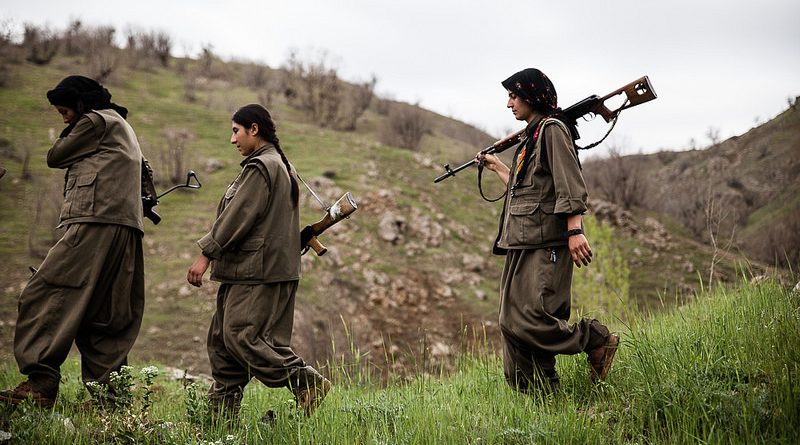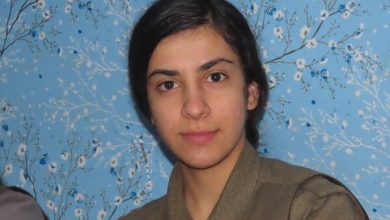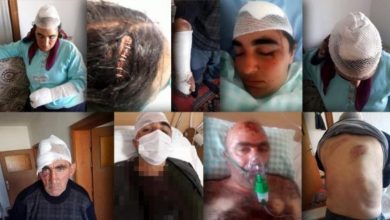Every year, thousands of people worldwide die by suicide. Yet, amidst these statistics, the silent voices of the women and adolescents who end their lives within Kurdish armed groups are rarely heard. Sexual violence, ideological pressures, harsh camp conditions, and a lack of freedom have pushed them toward a tragic choice—one not born of free will, but rather the result of desperation and a sense of being trapped.
By Dr. Zana Sadeqi
Every year on September 10, the world observes World Suicide Prevention Day, an opportunity to reflect on one of the most critical challenges to mental health and human rights. According to a World Health Organization (WHO) report, more than 700,000 people globally die by suicide annually. In other words, a person attempts suicide every 40 seconds.
Hidden within these global figures are silent realities that receive less attention, including suicide among members of Kurdish armed groups. These individuals are often adolescents and young people who were deceived or women who find themselves in violent and exploitative circumstances, seeing no way out but to end their own lives.
Over the past several years, Iranian Kurdistan Human Rights Watch has published numerous reports on this phenomenon. These reports indicate that suicide in these groups is not merely an individual act but a systemic consequence resulting from severe psychological, social, and physical pressures.
The Global Suicide Crisis: A Look Beyond Borders
Global Statistics and Significance
According to data from the WHO and the International Association for Suicide Prevention, suicide is the second leading cause of death for young people aged 15-29. Key contributing factors include poverty, war, discrimination, lack of access to mental health services, and hopelessness.
Armed Groups and Suicide
International studies show that living in armed and military environments creates intense psychological pressure. Brainwashing, individual restrictions, and systemic violence can increase suicide rates exponentially. Examples of this phenomenon have been observed in the Lord’s Resistance Army in Uganda, FARC in Colombia, and paramilitary groups in Afghanistan.
Similar conditions exist in the Middle East. Among Kurdish armed groups, members—especially adolescents and women—are the most significant victims of this crisis.
Suicide in Kurdish Armed Groups
Documented Evidence and Reports
Based on reports from Iranian Kurdistan Human Rights Watch:
- Numerous cases of suicide have been documented among members of the PKK and PJAK. Many of these victims were young women who were subjected to sexual abuse.
- In the PDKI and KOMALA groups, adolescents who were deceived into joining the camps committed suicide due to psychological pressure and an inability to escape.
- Some members who returned to Iran later committed suicide years after their return, due to severe psychological trauma.
Primary Causes of Suicide
An analysis of reports and field interviews reveals that the following factors play the most significant role in these suicides:
- Sexual and Gender-Based Violence: Women are often victims of rape and abuse by commanders. The pressure resulting from this violence pushes many to the point of suicide.
- Lack of Freedom to Leave: Members who request to leave are often threatened or imprisoned. Some are even at risk of being killed. This restriction creates a feeling of being trapped and hopeless.
- Harsh Physical and Environmental Conditions: Living in the mountains, being deprived of food and medicine, and facing cold and skin diseases inflict severe psychological and physical stress.
- Brainwashing and Ideological Pressure: Constant ideological indoctrination suppresses individuality. These pressures increase the risk of suicide.
- Social Isolation: Being cut off from family and the outside world leads to feelings of loneliness and meaninglessness, which are key motivators for suicide.
Documented Examples
- A young woman from Marivan ended her life by shooting herself after months of abuse in a PJAK camp.
- A 17-year-old adolescent in a KOMALA camp, after failing to escape, hanged himself.
- A member of PAK committed suicide a few months after returning to Iran, where he struggled with severe depression.
Legal Analysis
The Fundamental Right to Life
According to Article 6 of the International Covenant on Civil and Political Rights, the right to life is an inalienable right. The coercive conditions imposed in these camps represent a clear violation of this right.
Child Rights
Based on the Convention on the Rights of the Child, the use of children in armed conflict is prohibited. Children who join these groups are exposed to the most severe psychological harm, and these pressures can sometimes lead to suicide.
The Responsibility of Governments and External Actors
The Kurdistan Region of Iraq, where the camps are located, is responsible for monitoring these groups. Additionally, Western countries that directly or indirectly support these groups must be held accountable.
Psychological and Sociological Analysis
Existential Despair and Hopelessness
Living in an environment with no future, where an individual is viewed only as a tool for war, creates feelings of meaninglessness and hopelessness.
Psychological Disorders and PTSD
Members, especially children and women, suffer from chronic depression, anxiety, and PTSD. Without treatment, these disorders severely increase the likelihood of suicide.
Distinction from Common Suicides
Suicide in Kurdish armed groups is the product of a system of violence. This phenomenon is fundamentally different from common suicides in society (which result from economic or family problems).
Solutions and Advocacy for Prevention
- Accurate and Transparent Documentation: The continued work of Iranian Kurdistan Human Rights Watch and other independent organizations is essential to accurately document cases of suicide.
- International Pressure: The United Nations and the European Union must demand accountability from the government of the Kurdistan Region of Iraq. Pressure from the international community can prevent the continuation of this trend.
- Psychological and Social Support for Returnees: Establishing treatment and counseling centers for returning members plays a crucial role in breaking the cycle of suicide.
- Raising Awareness for Families and Communities: Informing families and adolescents about the deception used by these groups and the dangers of membership is vital.
Suicide among members of Kurdish armed groups is a human and human rights crisis. This phenomenon is a result of systemic pressures, exploitation, and structural violence, not merely an individual decision.
World Suicide Prevention Day must serve as a reminder of the global community’s responsibility to uphold human rights, protect children, and support at-risk women and adolescents. Only through documentation, international pressure, and psychological support can we prevent the recurrence of this tragedy.
Sources
- WHO, Suicide Worldwide in 2022, Geneva: World Health Organization.
- United Nations, International Covenant on Civil and Political Rights, Article 6.
- United Nations, Convention on the Rights of the Child, Articles 38 & 39.
- Reports from Iranian Kurdistan Human Rights Watch (2019-2025).
- Field research on PTSD and depression in war-affected and refugee children and adolescents, PLOS, PubMed.
- Local news and analytical sources: Rudaw, Kurdistan24, NRT, Hawar.






